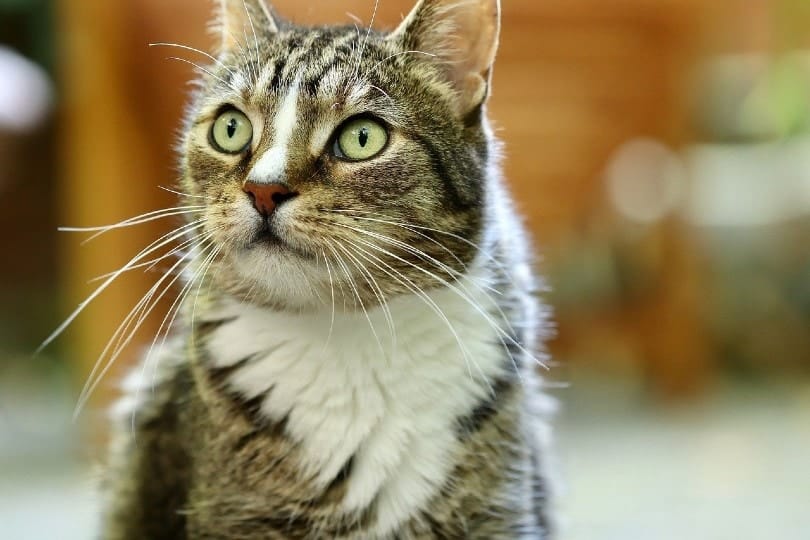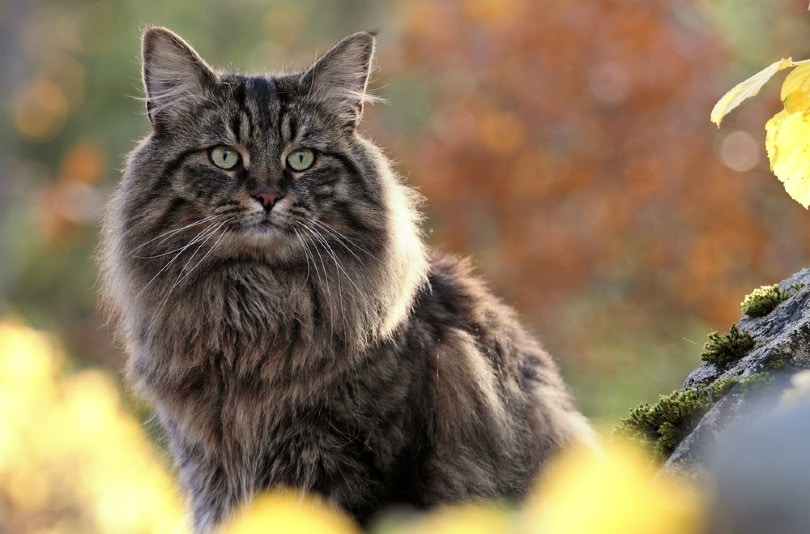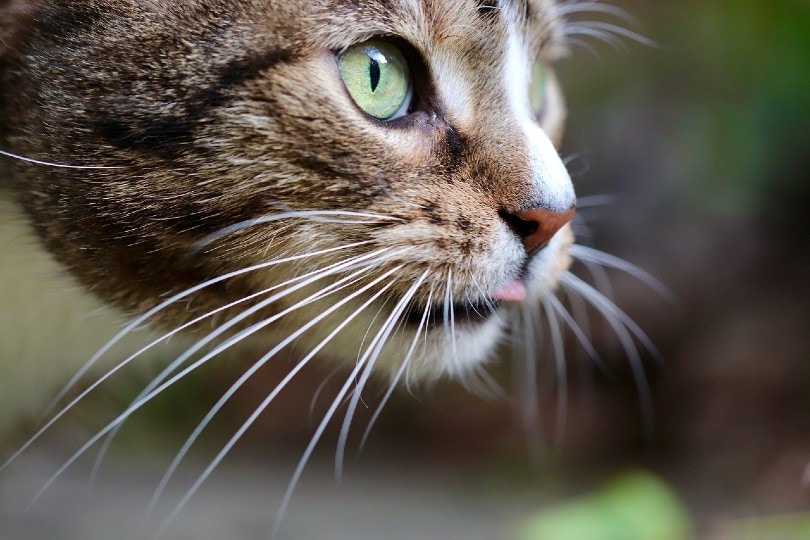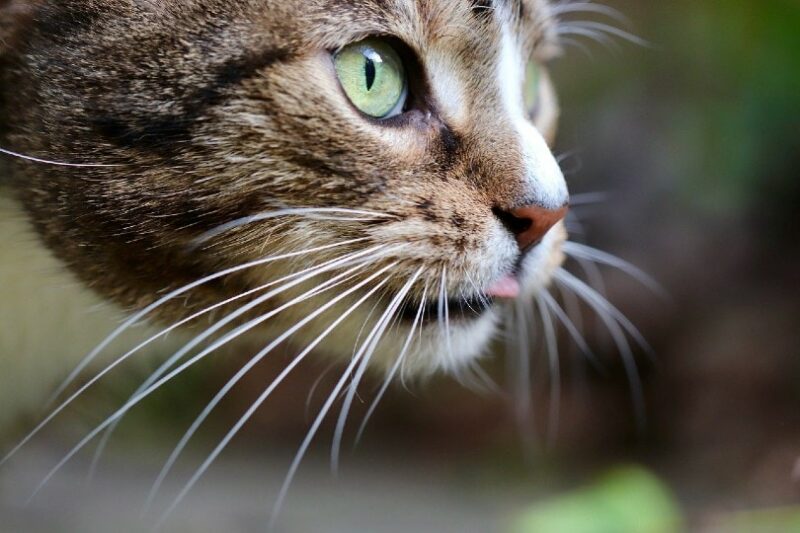It appears that nearly all cats have white, almost transparent-looking whiskers, but there are some exceptions. Cats can come in a range of different colors and various patterns, but their whiskers are usually always white regardless of their fur coloration.
A cat’s whiskers are unique and can benefit your cat in various ways, however, there is not much color variation when it comes to whiskers.
Why Are Cats’ Whiskers White?

Cats’ whiskers are white because the roots of the whiskers do not have any pigmentation, which gives them an almost translucent white appearance. The whiskers of cats are three times thicker than a cat’s normal fur and lack melanin. However, some cats’ whiskers can change color as they start to age.
Some whiskers may appear grey; however, they rarely have colors like black or orange. Genetics can play a role in the color of your cat’s whiskers which can make them turn black or darken. Some cats can have a mixture of different colored whiskers, and it can change as your cat goes through various life stages. Kittens are usually born with all-white whiskers that can darken to a grey color as they age.
Can a Cat’s Whiskers Be Black?
A cat can have black or dark grey-looking whiskers, however, the whisker itself will usually reflect as white in bright light because the whisker cannot be a solid black color due to the lack of pigmentation. Dead skin cells can also cause a cat’s whisker to turn black and darken.
Certain breeds like the Bombay cat may have slightly darker whiskers that can appear black if they are looked at from a distance. A cat’s whiskers can also turn a darker color if your cat is in their senior years. It is also common for a cat to have one whisker that looks darker than the others, and this may mean that the whisker is going to fall off.
Some cats may not experience any changes in their whisker color even as they age. If your cat has a black coat, it does not necessarily mean that they will have black whiskers, as an orange or white cat may also have darker whiskers, and most black cats will have white or grey whiskers.
What Is the Difference Between Cat Fur & Whiskers?

A cat’s whisker starts as a single ring of skin cells and develops at the root to be much thicker and longer than your cat’s fur. Whiskers do not retain melanin that gives cats their fur coloration, which is why whiskers are white. A whisker may gather some pigmentation before it is pushed out of the top layer of the skin, but soon loses it.
During the development of whiskers, the skin cells usually die when they reach the surface which makes them turn white. Cats’ whiskers grow close to nerves and have deep roots, which is why a cat’s whiskers are so sensitive to touch.
Whiskers are made from a protein called alpha-keratin, which is the same protein as a cat’s fur, however, the whisker is not found in the dermis layer of a cat’s skin, which is where the fur grows from. Instead, whiskers grow from a deeper layer in a cat’s skin known as the hypodermis. A cat’s coat color is dependent on the pigmentation in the skin cells, whereas the whisker is not.
Final Thoughts
A cat’s whiskers are generally white in appearance, but they can change in color when your cat ages or before the whisker falls out. It is possible for a cat to develop black whiskers depending on their genetics and whiskers may darken when your cat ages. The main reason a cat’s whiskers are white is that they do not hold any pigmentation like your cat’s fur. It is not uncommon for cats’ whiskers to change color throughout their life, however, many cats will have predominantly white whiskers.
See Also:
- Why Are My Cats Whiskers So Short? 7 Vet-Approved Reasons
- 9 Interesting Facts About Cat Whiskers You Need to Know
Featured Image Credit By: Annette Meyer, Pixabay












